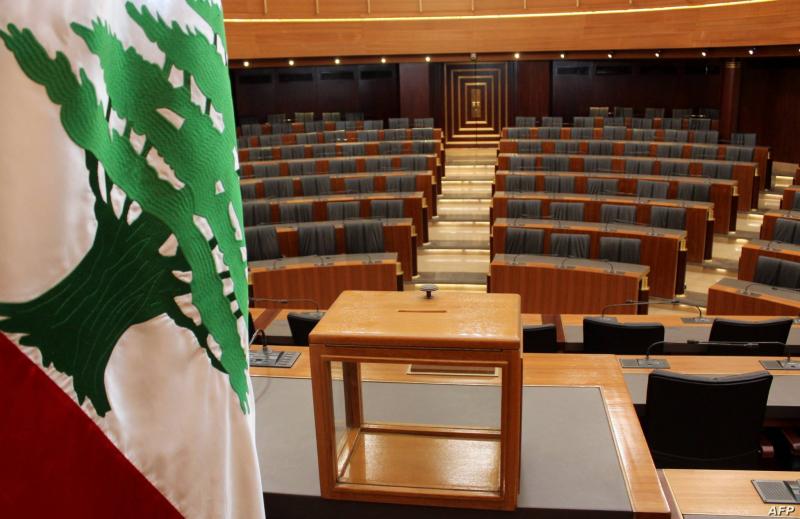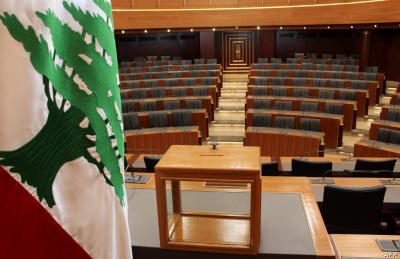There is no serious reliance on the efforts of French envoy Jean-Yves Le Drian to break the closed walls of the presidency. The regional and international atmosphere does not suggest, for now, any qualitative change that could contribute to shaping an agreement to end the vacancy in Baabda Palace. In fact, some see the escalating and tense situation in Syria as conclusive evidence that this phase is not one of ephemeral understandings across fronts. Consequently, relying on the movement of the French foreign minister at this particular moment is exaggerated and misplaced. Thus, it is expected that Le Drian will leave as he arrived, empty-handed, even if he brings new ideas that could inject some vitality into the Lebanese scene; they are not sufficient to alter the overall trajectory, which has yet to reach a state of maturity for a presidential agreement, at least in the foreseeable future.
This is because some observers accompanying the regional movement hint that a limited intersection has found its place at the negotiating table between Saudi Arabia and Iran regarding the Lebanese file, which may lead to an agreement on the identity of the next Lebanese president. They point out that this intersection has not determined the identity of the president but has stopped at specific criteria, which are a necessary entry point for identifying the next president. They note that the French movement could be a prelude to translating this intersection through preparations during Le Drian's meetings with Lebanese officials.
However, Le Drian's dialogue is fundamentally flawed, according to "Nidaa Al-Watan," due to the refusal of several political forces and parliamentary blocs to participate, similar to what the initiative of Speaker of Parliament Nabih Berri is experiencing, who decided to open the doors of Parliament for a new electoral session, but after hosting an expanded dialogue table, hoping it would pave the way for an agreement to ensure the election of a president at the end of the electoral sessions, or electoral rounds, if the quorum is not disrupted, as happened during the 12 sessions that took place in the council since it became an electoral body.
The contradiction in the position of the "Strong Lebanon Bloc" regarding the dialogue puts it in jeopardy, as the participation of the "bloc" is essential in light of the refusal of other Christian forces to sit at Berri's dialogue table. After Bassil hastened to welcome Berri's initiative, affirming that "what we heard from the Speaker of Parliament is good and positive, and if it is the case, God willing, we will have a president in September," the "Movement" linked its participation "to guarantees that this dialogue will end in open sessions for the parliament to elect the president, which do not stop until this election takes place."
Bassil also spoke about "an ambiguous formula for consecutive sessions as if there were intent to squander the opportunity," while the opposition categorically refuses dialogue, as if they were serving the owner of the initiative to disrupt the open sessions. He concluded the episode by saying, "I fear that we have returned to the Taoyun Alliance to squander the opportunity for the presidency."
Just as was done on the eve of each electoral session, he repeats the ambivalence surrounding his position on the dialogue, even though he seems inclined not to participate, especially since the bilateral dialogue between the "Movement" and "Hezbollah" is fraught with procrastination and maneuvering, while Berri was betting on achieving a breakthrough in this regard, allowing him to open the Parliament, and to present Sleiman Frangieh as a non-elected president, even if the quorum failed in the second session. However, Berri would have washed his hands of the accusation of obstruction and shifted it to others.
It appears that Bassil, according to "Nidaa Al-Watan," is the one crafting the exit that relieves Berri of the burden of opening the Parliament, should the Christian forces converge on the option of boycotting and refusing to participate in the dialogue, which is the condition Berri sets for determining the date for a new electoral session.
In light of this landscape, Berri will not risk setting a date for the 13th session to elect a president as long as the balances of power remain unchanged, similar to those of the 12th session that took place on June 14. Last week, during a meeting of the political council of the "Free Patriotic Movement," Bassil revealed that he explicitly informed "Hezbollah" that if Berri were to call for an electoral session, he would vote for Jihad Azour.
Similarly, the head of the "Democratic Gathering," MP Taymour Jumblatt, informed a delegation of opposition MPs who met him last week that he remains committed to the Azour option, and if a new date is set for an electoral session, he will vote for him again. So, will Berri risk opening the doors of Parliament? Certainly not.




